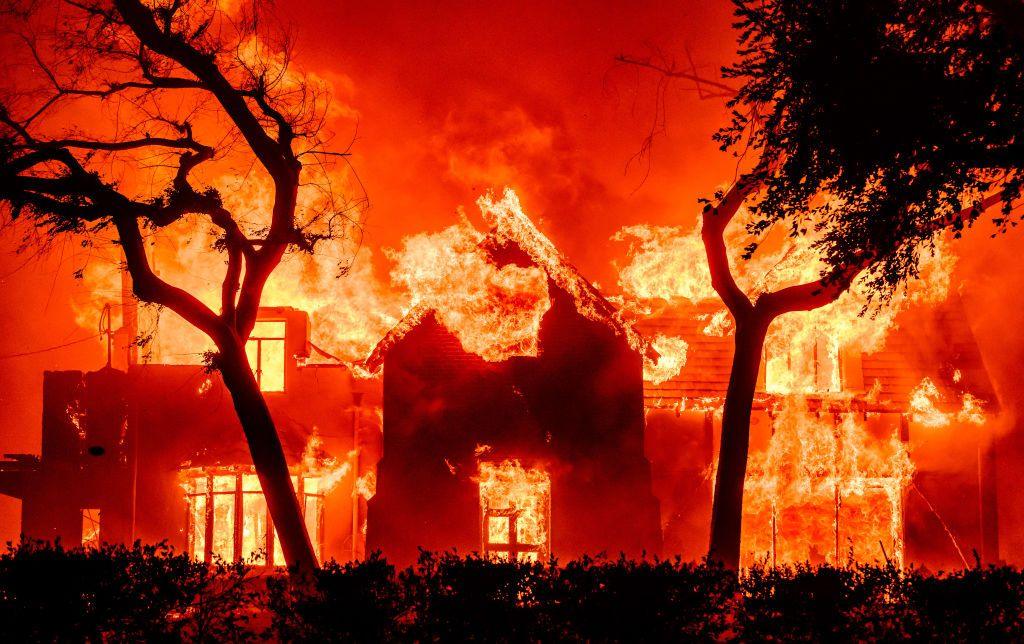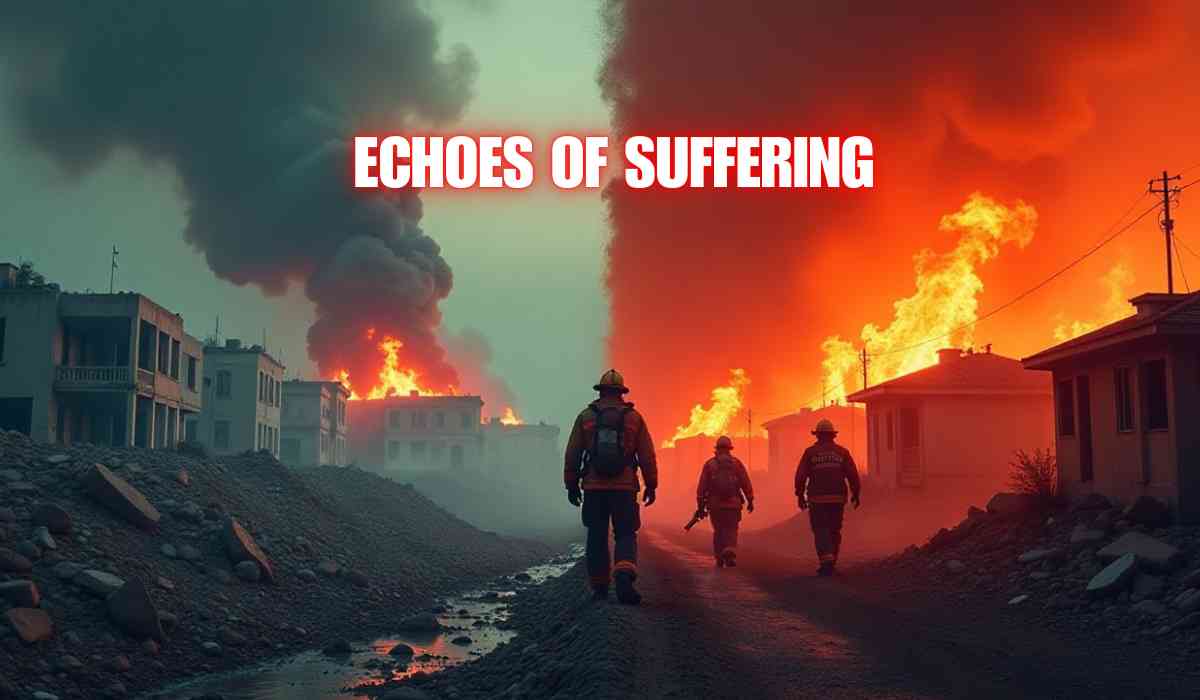As the world watches the humanitarian catastrophe unfolding in Gaza, the consequences of this crisis are beginning to haunt those who have turned a blind eye to suffering. The phrase "the ghost of Gaza" serves as a powerful metaphor for the repercussions of indifference and complicity in violence. Just as Los Angeles grapples with devastating wildfires—an event that many interpret as a consequence of neglecting environmental responsibility—so too does America face the haunting reality of its role in the ongoing destruction in Palestine. This editorial explores how the actions taken against Palestinians have returned to impact America, drawing parallels between the devastation in Gaza and the fires raging in LA.

The Humanitarian Crisis in Gaza
The situation in Gaza has reached a critical point, with over 46,000 Palestinians reported dead due to relentless Israeli airstrikes and ground operations. The scale of suffering is staggering; approximately 90% of Gaza's population has been displaced multiple times, with essential services like water, food, and medical care in short supply. The United Nations describes the blockade and military operations as "the most dreadful form of ethnic cleansing," highlighting the systematic targeting of civilians, including children and women. As hospitals are bombed and shelters turned into rubble, the humanitarian crisis deepens, leaving countless families shattered.

The Fires in Los Angeles
Simultaneously, Los Angeles is engulfed in wildfires that have destroyed homes and claimed lives. These fires are not merely natural disasters; they are exacerbated by climate change, urban sprawl, and a lack of preparedness. As firefighters battle the flames, the destruction serves as a stark reminder of humanity's vulnerability to nature's wrath. Yet, it also raises questions about accountability—how our actions towards the environment can lead to catastrophic outcomes.
Environmental Neglect
The wildfires in Los Angeles can be viewed through the lens of environmental neglect, where urban development and climate change have created conditions ripe for disaster. Similarly, the ongoing conflict in Gaza stems from decades of political neglect and disregard for human rights. Both situations reflect a failure to prioritize the well-being of vulnerable populations—whether they be residents of a city or civilians caught in a war zone.
Humanitarian Consequences
The suffering experienced by those affected by wildfires mirrors that of civilians in Gaza. In both cases, innocent lives are disrupted by forces beyond their control—be it nature or human aggression. The destruction wrought by these events raises critical questions about our collective responsibility towards one another as global citizens. Just as residents of Los Angeles grapple with loss and displacement due to fires, Gazans face similar fates amid bombings and blockades.
Complicity and Indifference
America's role in the Israeli-Palestinian conflict has often been characterized by unwavering support for Israel, raising ethical questions about complicity in human rights violations. While many Americans may feel disconnected from the plight of Gazans, it is crucial to recognize that apathy towards distant suffering can lead to a desensitized society that fails to act when faced with injustice at home.
The Ripple Effect
The ghost of Gaza is not just a distant tragedy; it has implications for American society. The indifference shown towards Palestinian suffering can create a culture where empathy is diminished, impacting how we respond to crises closer to home. As wildfires rage across California, they serve as a reminder that neglecting our responsibilities—whether environmental or humanitarian—can lead to devastating consequences.

Advocacy for Change
In light of these interconnected crises, it is imperative for Americans to advocate for policies that prioritize humanitarian aid and support for those affected by conflict. This includes urging lawmakers to facilitate the flow of aid into Gaza while holding accountable those responsible for violations against civilians. Grassroots movements can amplify voices calling for peace and justice, reminding us that every life lost is a tragedy that reverberates through time.
Fostering Empathy
Moreover, fostering empathy is crucial in bridging the gap between distant suffering and local action. Educational initiatives that raise awareness about the realities faced by Gazans can inspire individuals to engage meaningfully with global issues. By understanding our interconnectedness, we can cultivate a sense of shared responsibility that transcends borders.

Conclusion
The ghost of Gaza serves as a haunting reminder that our actions—or lack thereof—have consequences that extend beyond borders. As we reflect on the ongoing crisis in Palestine and the wildfires consuming Los Angeles, let us not turn away from suffering but embrace our role as compassionate global citizens. By advocating for humanitarian aid, fostering empathy, and holding ourselves accountable for our responses, we can honor those who have suffered and work towards a future where such tragedies are no longer commonplace.In this moment of reflection, may we strive not only for justice for Gaza but also for a world where every individual's dignity is upheld—a world where the ghosts of suffering do not haunt us but inspire us to act with compassion and urgency.
The time has come to recognize that what happens abroad inevitably impacts us at home; it is our collective responsibility to ensure that we do not allow history’s ghosts to dictate our future.
With inputs from agencies
Image Source: Multiple agencies
*The views expressed are personal to the author and do not reflect the platform's opinion of the same*
© Copyright 2024. All Rights Reserved Powered by Vygr Media.
























